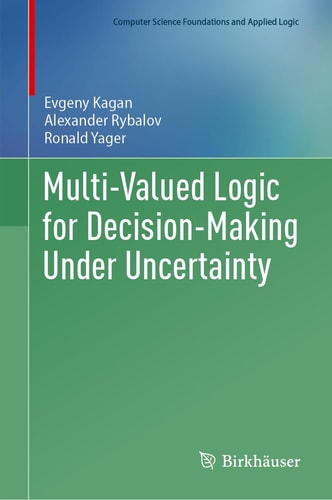

Most ebook files are in PDF format, so you can easily read them using various software such as Foxit Reader or directly on the Google Chrome browser.
Some ebook files are released by publishers in other formats such as .awz, .mobi, .epub, .fb2, etc. You may need to install specific software to read these formats on mobile/PC, such as Calibre.
Please read the tutorial at this link: https://ebookbell.com/faq
We offer FREE conversion to the popular formats you request; however, this may take some time. Therefore, right after payment, please email us, and we will try to provide the service as quickly as possible.
For some exceptional file formats or broken links (if any), please refrain from opening any disputes. Instead, email us first, and we will try to assist within a maximum of 6 hours.
EbookBell Team

4.7
96 reviewsThe suggested implementation of multi-valued logics is based on the uninorm and absorbing norm with generating functions defined by probability distributions. Natural extensions of these logics result in non-commutative and non-distributive logics. In addition to Boolean truth values, these logics handle subjective truth and false values and model irrational decisions. Dynamics of decision-making are specified by the subjective Markov process and learning – by neural network with extended Tsetlin neurons. Application of the suggested methods is illustrated by modelling of irrational economic decisions and biased reasoning in the wisdom-of-the-crowd method, and by control of mobile robots and navigation of their groups.
Topics and features
Bridges the gap between fuzzy and probability methods
Includes examples in the field of machine-learning and robots’ control
Defines formal models of subjective judgements and decision-making
Presents practical techniques for solving non-probabilistic decision-making problems
Initiates further research in non-commutative and non-distributive logics
The book forms a basis for theoretical studies and practice of decision-making under uncertainty and will be useful for computer scientists and mathematicians interested in multi-valued and fuzzy logic, as well as for engineers working in the field of data mining and data analysis.